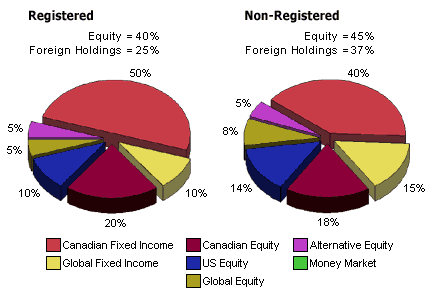Investment Risk Tolerance
Post on: 12 Апрель, 2015 No Comment

When you envision your retirement years, chances are you may not see risk as central to the picture. But defining your approach to risk is, in fact, vitally important to developing a retirement plan that works.
There are two scenarios you want to avoid when approaching retirement:
- Solely focusing on maximizing returns only to find that market losses have eroded your savings.
- Discovering your nest egg has not grown because it was stored for safe keeping in accounts that paid near-zero interest.
A key step is to analyze your feelings about risk, or risk tolerance, in light of your financial position. Can your retirement plan withstand short-term fluctuations in the markets? Will you be able to sleep soundly when the market drops, as well as when it rises? On the other hand, are you accepting enough risk to earn the returns your portfolio will need to cover retirement costs?
Know yourself by discovering your risk tolerance
Assessing your risk tolerance is highly personal it is about knowing yourself. You should analyze your own feelings about risk, then have an in-depth discussion with your financial advisor to be confident that your retirement plan fits your risk preferences.
The values of most investments fluctuate in the financial markets this is referred to volatility. The investment industry often uses jargon or labels as shorthand for risk but labels may miss the point:
- Defensive vs. aggressive.
- Investment-grade vs. high-yield.
- Formulas like beta or Sharpe ratio.
- Labels like conservative, moderate or aggressive for investor.
What you need is peace of mind with the level of risk you are taking. Nobody is happy when investments drop in value, but you can test out some scenarios to see how volatility affects you:
- Do you lose sleep or find yourself beset with worry about your savings?
- Does it upset you if a monthly statement shows your balance has dropped a percentage or two?
- How about if your account declines 10 or 20 percent? Will it cause you to sell everything, ride out the dip as a market cycle, or add more money in an effort to buy low?
- What if the market goes up 20 percent, but your holdings only rise 10 percent? Will you be pleased with that gain, or will you get the feeling that you have missed out?
- Do you pay more attention to daily market swings or on your progress on long-term goals?
- As you draw up a financial roadmap for retirement, it is critical to develop a full, honest assessment of your tolerance for the risks you may encounter. Think through your feelings, and be sure to discuss risk and volatility parameters with your financial advisor.
Your situation
Beyond the emotions surrounding risk, you need to evaluate the facts of your financial situation and stage of life. The specifics can determine how well you come through market fluctuations. Ask yourself about these influences when considering the risk you might take in your retirement plan:
- Time How many years will it be until you need to sell or restructure investments, either for the start of retirement or for other major events in life?
- Income stability How stable is your job or business income? Are you confident your income will hold up even if your investments experience some volatility?
- Emergency funds How many months of living expenses do you have in a cash reserve and will it carry you through emergencies without tapping into long-term investments? It is recommended that you have at least six months of emergency savings but you may want more depending on your circumstance or risk tolerance.
- Insurance Do you have sufficient medical, disability and life insurance coverage to endure an emergency and support your dependents without selling off investments? According to the Employee Benefit Research Institute, a 65-year-old couple will need an estimated $271,000 to pay for all out of pocket medical costs throughout retirement, assuming the couple signs up for Medicare at age 65 and has no employer-provided retiree health insurance.
Successful investing and preparation for retirement come from establishing a sound long-term strategy and then following through with that plan. No one can foresee every emergency or life change, but you can minimize risks by providing for challenging times so you dont need to abandon your long-term goals for every unexpected expense.
Good advice
Seek out expert advice specializing in retirement planning.
Solid financial advice should offer you objectivity and benefits of life situations when assessing your preferences for risk. Along with expert advice, be sure to give ample thought to risk, volatility and your own self-assessment.
Paying attention to the risk side of retirement will enable you to design a long-term investment plan that feels right and pays off as you fulfill your goals.
What to do next
- Evaluate the facts of your financial situation and stage of life.
- Analyze your feelings about risk then have an in-depth discussion with an investment advisor.
- The investment advisors at The Mutual Fund Store have vast experience in retirement planning and can offer you the objectivity and benefits of life situations in assessing your preferences for risk.
- Engage an investment professional with experience in retirement planning to draw up your road map.














